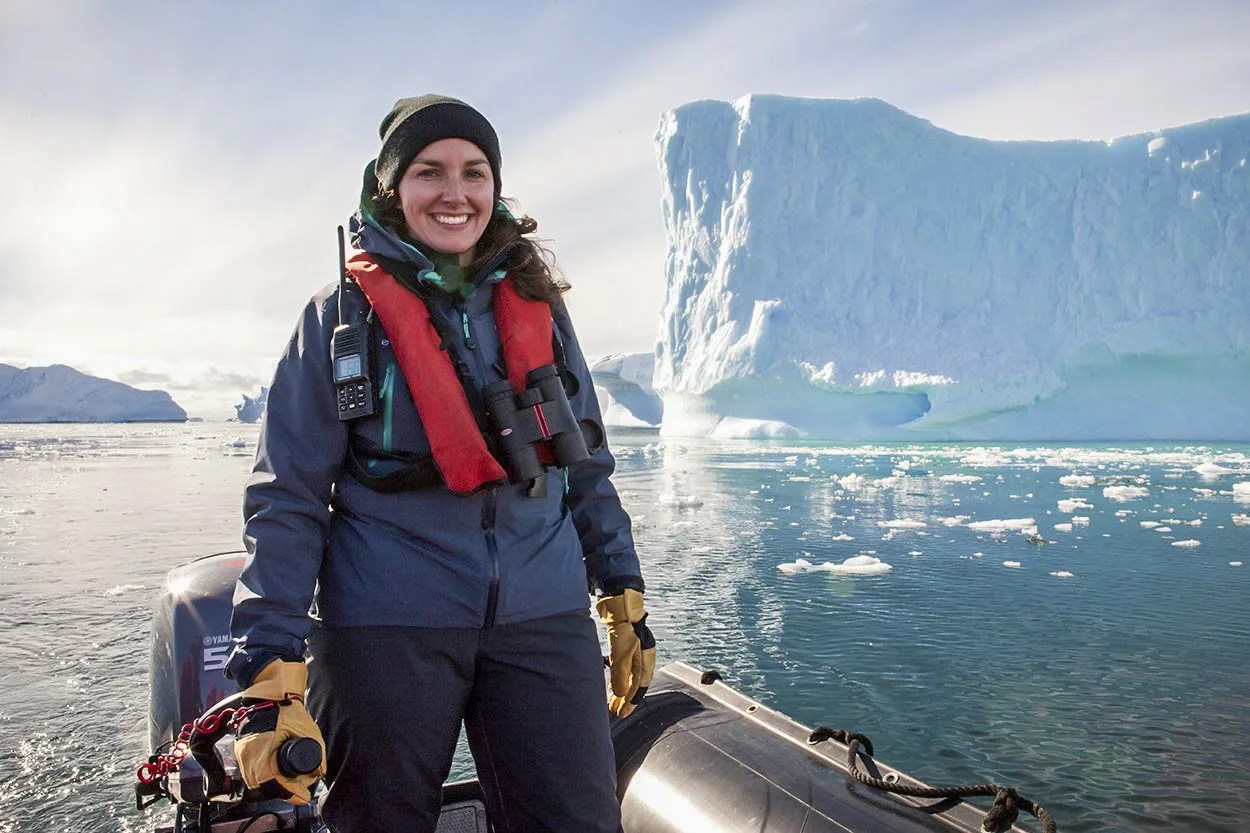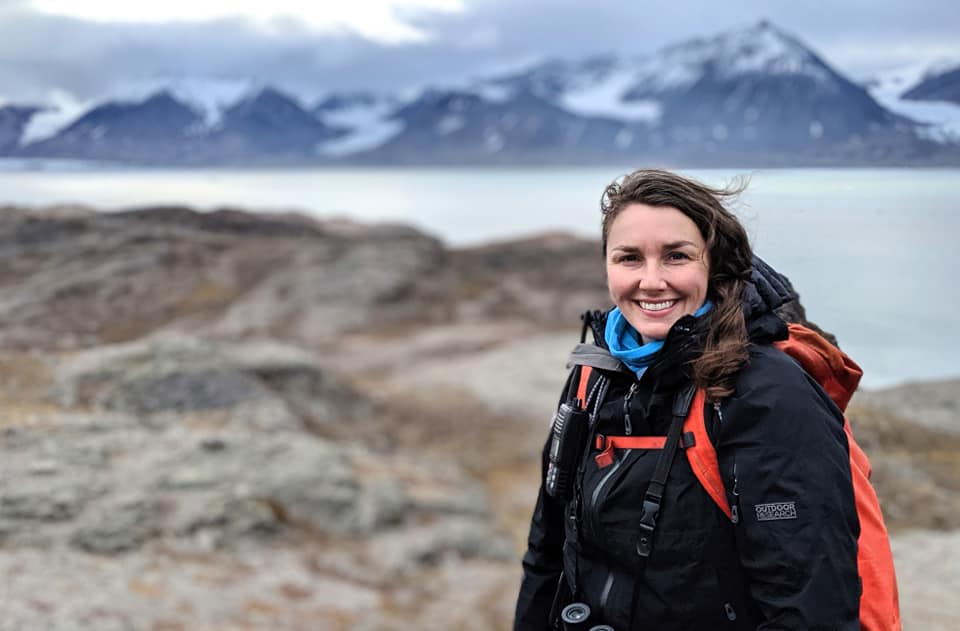
Lauren Farmer
NASA Citizen Scientist
Shawnee Mission South, Overland Park, Kansas
Pepperdine University, Malibu, California
Advertising
As a polar guide, I’m always looking for ways to engage guests with the environment. Citizen science programs offer an exciting opportunity to create ambassadors for the polar regions – people visit and then return home committed to championing for the protection of these regions. I personally became a citizen scientist while working as a photographer on a nuclear-powered Russian icebreaker at the North Pole. I was taking sea ice observations from the bridge of our ship. I decided to look for a way to use my access to the polar regions to provide meaningful data to scientists.
It's hard to pick just one! My favorite is GLOBE Observer which has turned me into a real cloud geek. I also participate in marine mammal identification through Happywhale, seabird surveys through the Antarctic Site Inventory, and phytoplankton sampling with Fjord Phyto.
My job as a polar guide keeps me busy traveling to the most remote parts of our planet, and (miraculously) getting paid for it! When I'm not working, I love spending time with my family in Australia, and making plans for a seaside farm my husband and I just purchased in the Scottish Highlands.
Working with a variety of citizen science projects has helped me to better understand intricate ecosystems like the fjord along the Antarctic Peninsula and my own local climate. I now feel a sense of responsibility to report what I find in my own region to help others understand the big picture.
I've always been fascinated by astronauts, and by the idea that ordinary people also can do magnificent, out-of-this-world things. This is also why I'm so passionate about citizen science. You don't have to be a world-renowned scientist to contribute valuable data to research, and to feel like you've really made a difference!
As a coordinator of citizen science programs aboard expedition vessels, it’s challenging to keep guests engaged and inspired when they may not be able to see the results or receive immediate feedback for their efforts. Another challenge in doing citizen science in the polar regions is dealing with connectivity issues and not having access to a reliable data connection.
Just get started! No matter your location, education, or interest, there is a citizen science project that will click for you. It can also be a great way to engage with family members, colleagues, and classmates.

I'm inspired by ordinary people who make changes in their lives that bring them more happiness and a greater sense of purpose. It can be something big or small, but every decision we make for ourselves can either bring us closer to – or farther from – the person we want to be. I have huge respect for those who choose to live their lives with purpose.
For someone who lives and works in the wildest regions of our planet, I'm actually a homebody! I love cozying up on the couch, ordering Thai food, and binging on Netflix. I am an Australian who moved to the United States when I was young. I’m now in the process of settling in Scotland while continuing to work in Antarctica and the Arctic. I truly love being a global citizen – with all the complexities that come along with it!
Planetary science is a global profession.

